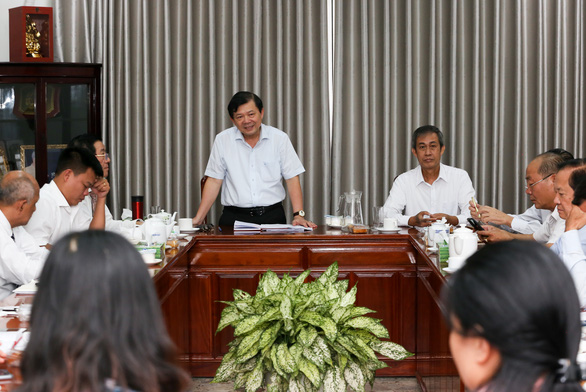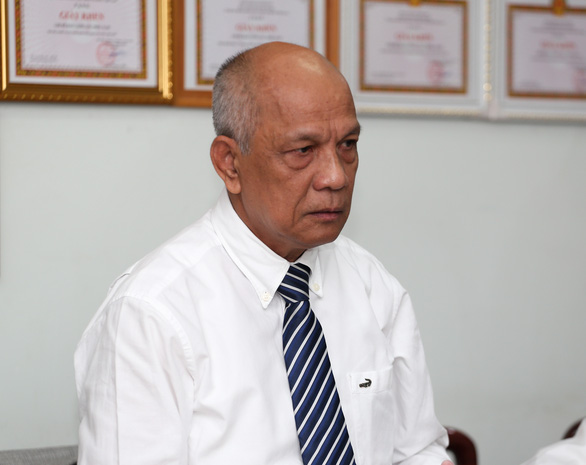Vietnam spends US$1.4 billion annually sending 100,000 students abroad to study but most of them refuse to return home to work, said Peter Hong, vice-chairman of the Business Association of Overseas Vietnamese.
At a meeting held late last week by the Board for Southern Affairs of the Vietnam Fatherland Front Central Committee to collect opinions and proposals of residents in the south, Hong said that the Politburo issued Conclusion 12 reviewing significant contributions of overseas Vietnamese.
Remittances to Vietnam amounted to some $18 billion last year, including $6.1 billion sent to Ho Chi Minh City, Hong said, citing statistics in the Politburo’s conclusion.
Overseas Vietnamese have poured VND45 trillion ($1.92 billion) into over 4,300 companies in Vietnam, including nearly VND23 trillion ($982.7 million) invested in around 1,300 firms in Ho Chi Minh City.
However, it is more important to attract Vietnamese people studying abroad back home and make use of their expertise, Hong said.
At present, some 500,000 Vietnamese intellectuals are well educated in other countries.
Many of them want to return to Vietnam to work but have encountered multiple obstacles.
Taking his wife as an example, he said, “My wife is heading a ward of a large hospital abroad. Her current salary is some $187,000 per year. She wants to come back to Vietnam to work but she is offered only VND14 million [$599[ a month.”
Hong also mentioned the 'Road to Olympia Peak' program, the biggest quiz show on TV for high school students in Vietnam.
|
|
| Peter Hong, vice-chairman of the Business Association of Overseas Vietnamese, speaks at the meeting. Photo: Thao Le / Tuoi Tre |
Many people have joked that the program should be named 'Road to Australia' as most of the winners choose to stay there after completing their studies, funded by the grand prizes they won in the show.
He also mentioned Project 165 for the training of managers abroad using the state budget, saying that up to 67 percent of 3,000 PhD holders are living abroad, 27 percent are working for state agencies, and the remainder have quit their jobs.
“I am heart-broken as our children do not return home after studying overseas. I am sad when thinking of our next generations,” Hong said.
Nguyen Huu Dung, vice-chairman of the Vietnam Fatherland Front Central Committee, said he would acknowledge, select, summarize, and report the opinions of members of the Vietnam Fatherland Front Central Committee to the Party, State, and lawmaking National Assembly.
Elimination of land price frame needed to fight corruption
Speaking of the anti-corruption fight at the meeting, lawyer Nguyen Van Hau, deputy head of the Ho Chi Minh City Bar Association, said the abolishment of the land price frame is important to root out corruption.
He attributed the devaluation of many land lots, many officials’ violations, and land disputes to unreasonable policies.
In addition, some people who denounce suspected corrupt officials get blamed for breaking units’ internal solidarity. This has discouraged accusers.
Therefore, the power of leaders must be controlled to ensure the effectiveness of the anti-corruption fight as leaders have the ultimate power over personnel and socio-economic issues, Hau said.
Many serious violations have been detected, including some by high-ranking officials, such as the former secretary of the Binh Duong Province Party Committee and the former Minister of Science and Technology, and were not found until the violators held more important posts.
It is necessary to enhance the improvement of anti-corruption regulations to ensure their feasibility and efficiency.
Moreover, loopholes in socio-economic management, especially in sectors prone to corruption, should be removed.
Penalties should be relaxed for corrupt officials returning all or a majority of the appropriated assets, Hong added.
Like us on Facebook or follow us on Twitter to get the latest news about Vietnam!





















































